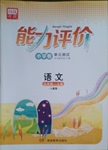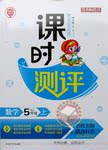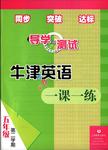题目内容
I started winning competitions. We still had very little money -- my father had to borrow $5,000 to pay for a trip to the International Young Pianists Competition in Ettlingen, Germany, in 1994, when I was 12. I realized later how much pressure he was under. Tears streamed down his face when it was announced that I'd won -- earning enough money to pay back our loan.
It was soo n clear I couldn't stay in China forever. To become a world-class musician, I had to play on the world's big stages. So in 1997, my father and I moved again, this time to Philadelphia, so I could attend The Curtis Institute of Music. Finally our money worries were easing. The school paid for an apartment and even lent me a Steinway(斯坦威钢琴).At night, I would sneak into the living room just to touch the keys.
Now that I was in America, I spent two years practicing, and by 1999 I had worked hard enough for fortune to take over. The Chicago Symphony orchestra heard me play and liked me, but orchestra schedules were set far in advance. I thought I might join them in a few years.
The next morning, I got a call. The great pianist Andre Watts, who was to play the "Gala Benefit Evening" at Chicago's Ravinia Festival, had become ill. I was asked to replace him. That performance was, for me, the moment. After violinist Isaac Stern introduced me, I played Tchaikovsky's Piano Concerto No. 1. My father's mouth hung open throughout the entire song.
I played until 3:30 a.m. I felt something happening. Sure enough, it was a great success. Still, my father kept telling me, "You'd better practice!" But living in America with me was beginning to relax him. In Beijing I'd been fat -- he made sure I ate -- and he'd been skinny. Now I was getting thin. He wasn't.
My father and I had often practiced a piece called "Horses," a fun version for piano and erhu. One night in Carnegie Hall, after I played Chopin and Liszt, I brought Dad out on the stage, and we played our duet(二重奏). People went crazy -- they loved it. My father couldn't sleep for days. He was too happy to sleep.
There have been lots of concerts in Carnegie Hall, but for me playing there was especially sweet when I remember the cold days in Beijing. Together, my father and I worked to reach the lucky place where fortune spots you, and lets you shine.
【小题1】In the first paragraph his father cried when it was announced that he'd won mainly because__________.
| A.his father was excited that his son succeeded at last. |
| B.his father was under too much pressure. |
| C.they could pay back the loan with the prize. |
| D.his father was proud of him. |
a. He and his father moved to Philadelphia.
b. He was asked to replace the great pianist Andre Watts.
c. He and his father played “Horses” together.
d.The Chicago Symphony orchestra heard his performance.
e. The Curtis Institute of Music lent him a Steinway
| A.a, e, c, b, d | B.b, e, a, d, c | C.d, a, e, b, c | D.a, e, d, b, c |
| A.The writer’s father had been very fat before they went to America. |
| B.The writer thought he would be one of them soon when he knew the Chicago Symphony orchestra heard him play and liked him. |
| C.The Curtis Institute of Music finally eased their money worries. |
| D.One can achieve his dream if he is lucky enough. |
| A.America | B.Beijing. | C.Carnegie Hall | D.All the places he went to. |
| A.I Took Off! | B.When Fortune Spots Me. |
| C.No Pain, No Gain. | D.My father and I |
【小题1】C【小题1】D【小题1】C【小题1】C【小题1】B
解析

 能力评价系列答案
能力评价系列答案 唐印文化课时测评系列答案
唐印文化课时测评系列答案 导学与测试系列答案
导学与测试系列答案注意: 如果选 E 涂 AD, 选F 涂BD,选G涂 CD。
I started to study English by myself when I was about 15 because of Michael Jackson. He’s been my idol since 1991, and I really wanted to understand him and his music. 1. I was very patient, and that helped me a lot in the process of learning English by myself.
Actually, I can’t describe the techniques I used to learn it, because it was almost automatic for me to start understanding English after a period of hard work trying to translate texts, dialogues and songs. 2.
One thing that I can say is that I started learning English through comparing patterns and observing the language structure, comparing it to Portuguese and trying to memorize rules. 3. Another thing that helped me a lot is the fact that I would spend hours studying the uses, tenses, etc. of the words I could notice.
4. It was the hardest part of the process for me, because the only source I had was music, although I used a pronunciation dictionary , too.
5. Later on I entered UFMG and really started studying English. Today I’m a teacher at an English Course, and I really enjoy it, because I can improve my English each day.
|
A.Despite the difficulty, I could learn everything well. |
|
B.So I really can’t say exactly how I’ve achieved proficiency(熟练). |
|
C.With the help of my teacher, I learned pronunciation well. |
|
D.So I can say that a strong will is the key to my success. |
E. After having a large vocabulary, I started working on pronunciation.
F. And I used to make lists of words in order to memorize them and their meanings.
G.I used to use a dictionary to find the meaning of each word in songs written by him.